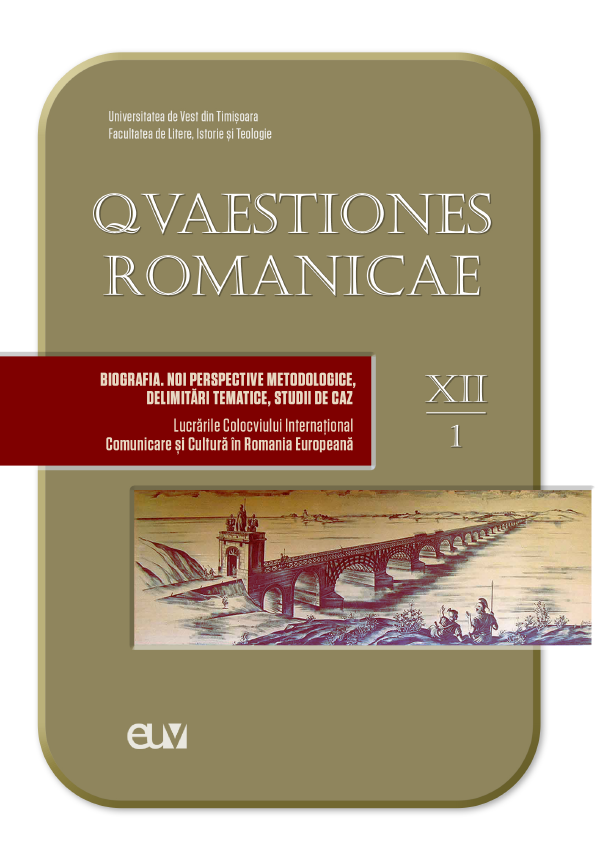Puccini in love. 100 de ani de la moartea compozitorului verist
Abstract: (Puccini in love. 100 years since the death of the verist composer) Giacomo Puccini, one of the most important composers of the new Verismo school, was born in the Tuscan town of Lucca on 22 December 1858. He is one of the greatest portraitists of love in its various forms: pure, naive love, passionate, possessive love, maternal love, absolute, sacrificial love. Manon, Mimì, Musetta, Floria, Cio-cio-san, Minni, Giorgetta, Sora Angelica, Lauretta, Turandot or Liù are the faces that the eternal feminine wears in Puccini's operas. He was considered by his contemporaries to be the singer of "the miscellaneous", of "sweet nothings": the poverty of Des Grieux, the lack of money and prospects of the bohemians of the Latin Quarter, the jealousy of the barcalounger of The Cloak, the cunning of Gianni Schicchi and the vulgar greed of Buoso Donati's relatives. Even if this remark is partly true, leaving aside the maliciousness of the wording, we cannot but notice how sensitively and poetically Puccini searches for the dramas of everyday life, how he knows how to find in them, beyond the tiny and sad truths, the noble and pure impulses of sensitive hearts! It was said at the time: people will die, governments will change, but the melodies of La Boheme will live forever! Puccini died in 1924 in a clinic in Brussels, where he hoped to halt the progress of his laryngeal cancer, and was buried, according to his wishes, in the wall of his room at the Torre del Lago, at keyboard level, so that the music would always be close to him.
Keywords:Giacomo Puccini, verism, melodism, eternal feminine, libretto.
Rezumat: Giacomo Puccini, unul dintre cei mai importanți compozitori ai noii școli veriste, s-a născut în orășelul toscan Lucca, pe 22 decembrie 1858. Este unul dintre cei mai mari portretiști ai iubirii, în variatele sale ipostaze: iubirea pură, ingenuă, iubirea pasională, posesivă, iubirea maternă, iubirea absolută, sacrificială. Manon, Mimì, Musetta, Floria, Cio-cio-san, Minni, Giorgetta, Sora Angelica, Lauretta, Turandot sau Liù sunt chipurile pe care le îmbracă eternul feminin în operele pucciniene. A fost considerat de contemporanii săi, cântăreţul “faptului divers”, al “nimicurilor dulcege”: sărăcia lui Des Grieux, lipsa de bani şi perspectivă a boemilor din cartierul latin, gelozia barcagiului din Mantaua, viclenia lui Gianni Schicchi şi lăcomia vulgară a rudelor lui Buoso Donati. Chiar dacă această remarcă este parțial adevărată, lăsând la o parte malițiozitatea formulării, nu putem să nu remarcăm cu câtă sensibilitate și poezie, caută Puccini în dramele vieţii de fiecare zi, cum ştie să găsească în ele, dincolo de adevărurile minuscule şi triste, elanurile nobile şi curate ale inimilor sensibile! S-a spus atunci: oamenii vor muri, guvernele se vor schimba, însă melodiile din Boema vor trăi veșnic! Puccini a murit în anul 1924, într-o clinică din Bruxelles, unde spera să stopeze evoluția cancerului laringian de care suferea, fiind înmormântat, conform dorinței sale, în peretele camerei sale de la Torre del Lago, la nivelul claviaturii, astfel ca muzica să îi fie mereu aproape.
Cuvinte-cheie: Giacomo Puccini, verism, melodism, etern feminin, libret.
